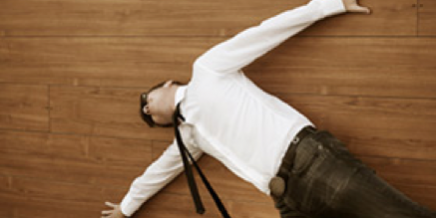It can happen to anyone at almost any time. You’re fine one moment, and the next thing you know, you’re waking up from a fainting spell.
Also called syncope (SIN-ko-pee), fainting is a brief loss of consciousness that happens when blood flow to the brain is restricted. Fainting spells account for three percent of all visits to the emergency room, so while you may not have one every day, they’re fairly common. Though usually not life-threatening, passing out unexpectedly can be a scary experience.
If you’ve ever wondered about the causes of passing out and what you can expect before and after, keep reading to get the basics about fainting.
Why You Faint
There are numerous reasons you may faint, some medical and some psychological. The most common type of fainting is a vasovagal (keep reading to understand this word) attack and usually has no connection to a heart or brain problem. When your blood pressure quickly drops, blood flow is reduced to the brain and you hit the floor. This type of fainting can be caused by anxiety, pain, fear, extreme stress, exhaustion, prolonged standing, or the use of drugs or alcohol.
The vagus nerve connects the brain to the digestive system and controls blood flow to the abdominal area. When the vagus nerve is overly stimulated by hunger, vomiting, dehydration, or diarrhea, it causes a drop in blood pressure and an increased risk of fainting.
At other times, fainting may be due to the way your body regulates blood pressure. Stand up too fast after sitting or lying down, and you may feel dizzy and pass out. This is more likely to occur to individuals who are elderly, sedentary, or weak.
Certain medical conditions also put you at risk for passing out. Conditions that are most likely to cause you to faint include diseases of the autonomic nervous system (the body system that controls involuntary functions such as breathing, blood vessel constriction, and heart beat), diabetes, alcoholism, heart problems, nerve conditions, shock (a dangerous condition from loss of blood, an allergic response, or an infection), or hyperventilation (breathing too quickly when you’re anxious or panicked).
Growing old on screen is not for the faint of heart. – George Clooney
Before and After the Faint
Sometimes you can feel yourself about to pass out. Depending on the reason why you’re fainting, there may be a pattern that goes with it. As your brain receives less blood, it isn’t able to send signals to your muscles. You may first feel flushed or warm, dizzy, confused, or nauseated. Your vision may blur, your hearing may weaken, and your breathing may quicken. Then you’ll feel weak and lose consciousness. Your body will go limp and start sweating. If you’re standing when this happens, you’ll fall to the ground. Sometimes, the lack of blood flow may cause a quick nervous impulse that causes trembling or shaking like a small seizure.
Loss of consciousness is usually very brief. You probably won’t need smelling salts or cold water to regain consciousness. Once your brain starts to receive adequate blood flow, you’ll start to wake up. Your sweating will stop, your color will come back, your heart may feel like it’s racing, and you may unfortunately lose control of your bladder or bowels and have an accident.
Dealing with Fainting
Any time feel yourself about to pass out, the best thing you can do is to lie down until the symptoms go away. You may still faint, but if you do you won’t get hurt from falling. If the symptoms last longer than three minutes or you feel short of breath or chest pains, call 911. The symptoms of cardiac arrest often look a lot like fainting, but are much more dangerous.
Not sure what caused your fainting spell? It may be worth your time to get checked out by your doctor. Those who suffer frequent fainting spells should also be evaluated to determine their cause.







